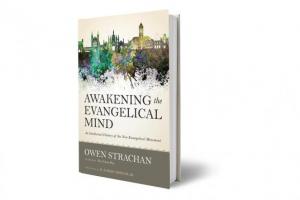Manhattan pastor Tim Keller recently addressed questions related to the unique challenges of ministry in our day in an online interview. I found the link through Florida pastor’s Tullian Tchividjian’s excellent blog.
Here’s what Keller had to say about the need for revival in our day (remarks published on Darryl Dash’s blog):
“We live in a society in which revival is necessary. As Peter Berger shows in The Heretical Imperative in contemporary pluralistic societies, everyone who believes a faith has to make an individual choice to believe it. There are no longer inherited, authoritative faith traditions. Whether you raise a child Lutheran, Muslim or Baptist the child at some point will have to choose to make the faith of his parents his or her own. In other words, they will have to have a conversion experience.
When revival breaks out through a recovery of the gospel, three things happen:
- nominal church members realize they’d never been converted;
- sleepy, lethargic Christians are energized and renewed;
- outsider non-Christians are attracted into the beautified worship, community and lives of the converted and renewed church members.
That’s how it works. We need it.”
Here are Keller’s interesting comments on the relationship between Christ and culture:
“The second deeper issue is the relationship of Christ to culture. The old Niebuhr book shows how the Church has never come to consensus on how it should relate to a culture that is sharply non- or anti-Christian. The evangelical Church is bitterly divided into groups that say, either we should change the culture “one heart at a time” by evangelizing individuals, or we should change the culture by penetrating the cultural institutions with Christians operating out of a biblical world-view.
Others say we will only affect the culture if the Church contextualizes—connects to people’s needs and concerns and serves the poor and needy—while still others say we shouldn’t be trying to change culture at all; we should just “be the Church,” because trying to change the culture inevitably corrupts the Church into the image of the culture.
Until we can break through these warring views and factions we are in trouble. Don Carson’s recent book Christ and Culture Revisited is a good starting point because he shows that each approach has a lot of biblical warrant, but each approach, taken as the exclusive one, is seriously imbalanced. I believe the different approaches are actually responding more to other parts of the Christian Church than they are to the world. They are defining themselves as being “not like those Christians over there” and so are falling into what Don calls “reductionisms.””
I appreciate that a pastor like Tim Keller is able to think critically about theological trends, to practice a spiritually and theologically driven ministry, and to lead the way in engaging people of our age with the gospel. Though few possess Keller’s intellectual and ministerial gifts, many of us can emulate his drive to bring the unchanging gospel to a changing world. Many of us can pray and work for conversions in our churches, and many of us can carefully consider culture and engage it from a Christian perspective.















